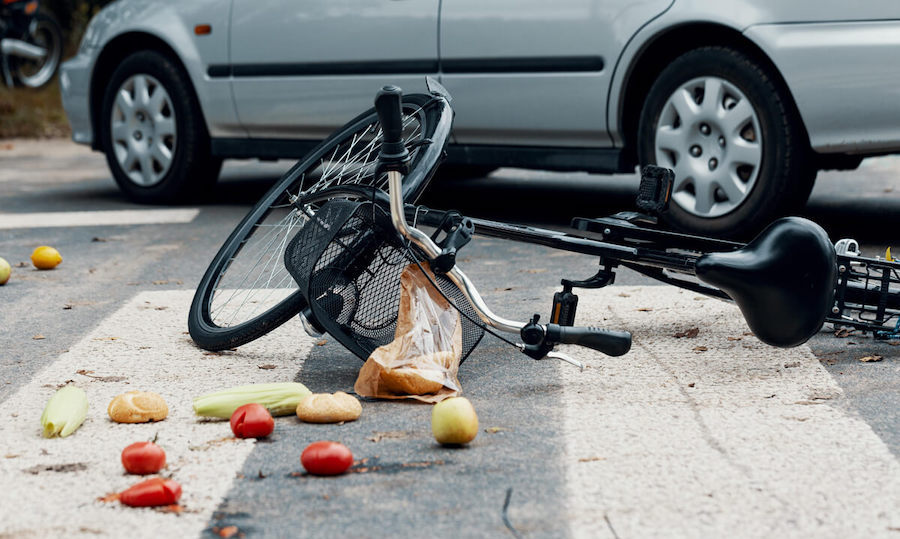
What Do You Do After a Bicycle Accident?
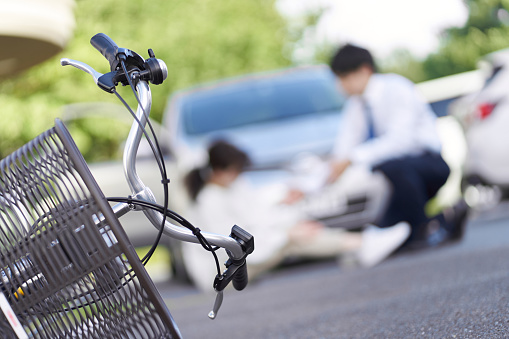 Have you or a loved one been involved in a bicycle accident in Arizona? Not sure what to do next? The bicycle accident attorneys here at The Law Office of Zayed Al-Sayyed have years of demonstrated success with bicycle accident cases and are here to help.
Have you or a loved one been involved in a bicycle accident in Arizona? Not sure what to do next? The bicycle accident attorneys here at The Law Office of Zayed Al-Sayyed have years of demonstrated success with bicycle accident cases and are here to help.
So, what do you do after a bicycle accident? Today, our expert legal team is guiding you through the process of what to do next. If your accident was sustained due to the negligence of someone else, be sure to consult with a skilled Phoenix attorney.
Call the Police
After a bicycle accident, the first thing you should do is call the police. If there has been any property damage or injuries, both parties are legally obligated to remain at the scene until the police arrive.
Avoid Negotiating
After a bicycle accident, you might be tempted to try and negotiate with the driver (especially if they apologize and/or accept the blame). However, we advise you to resist the urge. It’s hard to know the full extent of your injuries at the scene and if you begin negotiating or communicating with the driver, you might say something that can thwart your claim later on.
Exchange Information
We always recommend that the motorcyclist and driver exchange names, addresses, phone numbers, driver’s license numbers, license plate numbers, and insurance information. At this point, you should also record the names and phone numbers of any witnesses if possible.
Collect Evidence
After a bicycle accident occurs, it’s essential to collect any and all evidence that could be used to build your case. This includes taking plenty of photos, collecting witness statements, and documenting any relevant details.
This will be used to bolster your personal injury claim and can go a long way in ensuring that you receive fair compensation for your accident.
Get a Police Report
In addition to calling the police, it’s also important that you file a police report that includes your statement and documents your injuries. A police report is one of the main ways insurance companies determine liability, so be sure to include all the important details in your report.
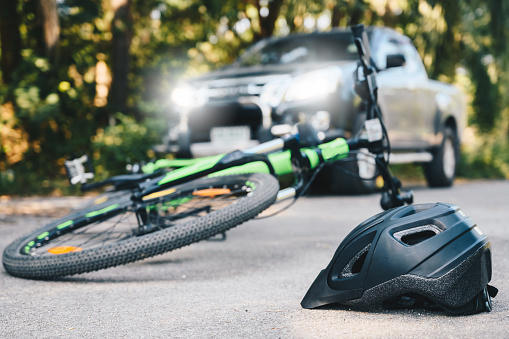 Seek Medical Attention
Seek Medical Attention
You should always consult a doctor after getting into any sort of accident. Many serious injuries, like spinal and brain injuries, take time to develop. Therefore, it’s important to receive a proper medical evaluation even if you don’t think you are seriously injured. When undergoing your medical evaluation, be sure to collect evidence that can be used in your personal injury claim.
Hire a Bicycle Accident Attorney
Working with an experienced bicycle accident attorney is the best way to ensure a successful outcome to your case. They can help you with paperwork, deal with insurance adjusters on your behalf, and guide you through the personal claim process from start to finish.
Top-Rated Phoenix Bicycle Accident Attorneys
So, what do you do after a bicycle accident? Hopefully, this blog post gave you the answers you were looking for. If you or a loved one has recently been involved in a bicycle accident in Arizona, The Law Office of Zayed Al-Sayyed is here for you.
We employ our Aggressive Compassionate Representation to aggressively pursue the maximum allowable compensation for your case while treating you with compassion and respect throughout the journey. Contact us today for a free consultation.

Is Arizona A Hands-Free State?
 The National Safety Council reports that cell phone use while driving leads to a staggering 1.6 million crashes each year. Because of this, many states have adopted a “hands-free” cell phone policy. Not sure what that is? Don’t worry, our legal team is here to answer that question and more.
The National Safety Council reports that cell phone use while driving leads to a staggering 1.6 million crashes each year. Because of this, many states have adopted a “hands-free” cell phone policy. Not sure what that is? Don’t worry, our legal team is here to answer that question and more.
A hands-free cell phone policy makes it illegal to use a cell phone while driving (unless, of course, it is in a hands-free mode). While this law is fairly common around the country, it is up to each state to decide whether or not they want to adopt it. So, is Arizona a hands-free state? Let’s get into it.
What Is the Distracted Driving Law in Arizona?
In April 2020, Arizona passed a new distracted driving law that prohibits motorists from using handheld devices, like cell phones, while driving. This law was enforced beginning on January 1, 2022. Since then, thousands of drivers have been issued citations for texting or talking on their cell phones while driving.
But does this law entirely illegalize cell phone use while driving? Not completely. Stay tuned to learn what exactly this law means for Arizona drivers.
What Does This Mean For Arizona Drivers?
 Are you a driver wondering how the Arizona hands-free law will affect you? Our skilled car accident attorneys can break it down for you. Under Arizona’s distracted driving law, drivers are prohibited from the following:
Are you a driver wondering how the Arizona hands-free law will affect you? Our skilled car accident attorneys can break it down for you. Under Arizona’s distracted driving law, drivers are prohibited from the following:
- Holding a cellphone (including holding it between your cheek and shoulder)
- Reading, writing, or sending texts, emails, or any other text-based communication
- Watching or recording any kind of video
Of course, many people rely on their cell phones for directional assistance and emergencies. For that reason, the law does not entirely eliminate the use of cell phones. As we mentioned, there are a few exceptions:
- Accepting or making a call by briefly swiping your screen
- Using an earpiece, headpiece, or wrist device to talk on the phone
- Using voice commands
- Using your phone as a GPS
- Using your hand-held cell phone while stopped at a red light
- Calling 9-1-1 via cell phone
Dangers of Distracted Driving in Arizona
 The unnecessary use of a cell phone while driving is incredibly dangerous. Because cell phone use impairs a driver’s ability to focus, they can become distracted and miss traffic signals, pedestrians, slowing traffic, and other driving hazards. Oftentimes, distracted drivers are the cause of wrongful accident deaths and personal injuries that require compensation.
The unnecessary use of a cell phone while driving is incredibly dangerous. Because cell phone use impairs a driver’s ability to focus, they can become distracted and miss traffic signals, pedestrians, slowing traffic, and other driving hazards. Oftentimes, distracted drivers are the cause of wrongful accident deaths and personal injuries that require compensation.
Top-Rated Car Accident Attorneys in Phoenix, AZ
So, is Arizona a hands-free state? We hope that this blog post helped to clear things up for you. As much as we wish decreased cell phone use would decrease the number of car accidents in Arizona, we realize that some personal injuries are inevitable.
If you or a loved one is suffering a personal injury that resulted from someone else’s negligence, then our team at The Law Office of Zayed Al-Sayyed can help. Through our aggressive compassionate representation, we are devoted to ensuring that you get the compensation you deserve. Contact us today for a free consultation with an expert.

4 Tips For Maximizing Your Car Insurance Claim
 Anyone who has been in a car accident knows just how painful and scary they can be. Many people choose to file a car insurance claim to gain compensation for their suffering and property damages. At The Law Office of Zayed Al-Sayyed, we are often asked how people can receive the compensation that they deserve.
Anyone who has been in a car accident knows just how painful and scary they can be. Many people choose to file a car insurance claim to gain compensation for their suffering and property damages. At The Law Office of Zayed Al-Sayyed, we are often asked how people can receive the compensation that they deserve.
Well, that’s where we come in. As experienced car accident attorneys, we work to ensure that our clients receive the maximum amount of compensation for their claims. Curious as to how? Today, our legal experts are sharing their top 4 tips for maximizing your car insurance claim.
-
Hire a Car Accident Attorney
Sure, we might be a little biased when we say this, but hiring a car accident attorney is the best way to ensure that you receive all the damages you are entitled to. Not only is our team here well-versed in Arizona’s personal injury laws, but we conduct extensive investigations to determine the cause of the accident and responsibility.
Additionally, we help our clients to avoid any potential mistakes. Our legal team understands the tactics car accident companies use to devalue accident claims, so we’re able to fight them on your behalf and relieve you of the burden.
-
Seek Medical Treatment for Injuries
 Even if you do not think you are seriously injured, it is in your best interest to undergo a proper medical examination after the accident. Many serious injuries (including spinal injuries, traumatic brain injuries, and neck injuries) often don’t present symptoms until days or weeks after the accident initially occurs.
Even if you do not think you are seriously injured, it is in your best interest to undergo a proper medical examination after the accident. Many serious injuries (including spinal injuries, traumatic brain injuries, and neck injuries) often don’t present symptoms until days or weeks after the accident initially occurs.
When filing a car insurance claim, it is critical that you know the exact severity of your injuries. Furthermore, you should always follow your doctor’s guidance and document your entire medical experience.
-
Gather and Preserve Evidence
To receive compensation, you must successfully prove the other driver’s negligence, the seriousness of your condition, and the amount of any damages you incurred. This is done by collecting and preserving adequate evidence, which is a process that begins at the scene of the accident. Here are some examples of evidence you should be collecting either during the accident or after the fact:
- Police report
- Accident photos that document damage done to either vehicle, the scene of the accident, road conditions, personal injuries, etc.
- The other driver’s license and insurance information
- Witness statements and contact information
- Medical bills and records
- Wage loss documentation
- Repair receipts for your vehicle and/or property
-
Do Not Accept a Quick Settlement
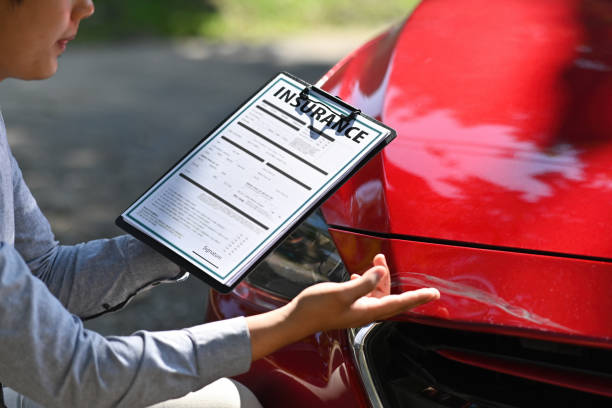 Car insurance companies use many tactics that prey on your vulnerability and/or financial desperation immediately following a car accident to secure a quick settlement.
Car insurance companies use many tactics that prey on your vulnerability and/or financial desperation immediately following a car accident to secure a quick settlement.
While their speedy offer might be enticing at first, quick settlements are usually much lower than the amount you are truly entitled to. Additionally, once you agree to a quick settlement, it is almost impossible to reopen your claim and ask for more money.
Call a Car Accident Attorney in Phoenix, AZ
When it comes down to it, the best way to ensure you receive the compensation you deserve is to enlist the help of an experienced car accident lawyer. With ample experience handling personal injury and car insurance claims, our legal team at The Law Office of Zayed Al-Sayyed can help you form the best strategy for your case.
Contact our team for a free consultation with one of our top car accident attorneys today.

4 Questions To Ask a Personal Injury Lawyer Before Hiring
 Are you suffering from an injury caused by someone else’s negligence? Well, hiring a personal injury lawyer is a great way to ensure you receive the compensation you deserve. But are all personal injury lawyers the same in what they bring to the table?
Are you suffering from an injury caused by someone else’s negligence? Well, hiring a personal injury lawyer is a great way to ensure you receive the compensation you deserve. But are all personal injury lawyers the same in what they bring to the table?
The short answer is no. For that reason, it is important to find the right personal injury lawyer to handle your case. If you’re currently seeking a personal injury lawyer, stay tuned. Our skilled legal team is going over the top 4 questions to ask a personal injury lawyer before hiring them.
-
What’s your experience handling cases like mine?
Personal injury claims cover a wide range of accidents and suffering. Therefore, you want to find a personal injury lawyer who has experience handling cases that are similar to yours. Not only does experience mean they are familiar with common legal issues, but it helps to show you that they can successfully advocate on your behalf.
Here at The Law Office of Zayed Al-Sayyed, we are equipped to handle personal injury cases caused by car accidents, motorcycle accidents, truck accidents, pedestrian accidents, bicycle accidents, medical malpractice, slip and fall accidents, construction accidents, serious injuries, wrongful deaths, and more.
-
Do you have courtroom experience?
 While most personal injury claims do not make it to trial, some will. For that reason, you want to make sure you hire a personal injury lawyer who has trial experience.
While most personal injury claims do not make it to trial, some will. For that reason, you want to make sure you hire a personal injury lawyer who has trial experience.
On the off chance that your case does make it to court, you don’t want to be ill prepared. Winning in court is as much about the experience as it is about skill, so this is an important question to ask a personal injury lawyer before hiring them.
-
Who will be handling my case?
It might surprise you to hear that many personal injury attorneys don’t handle every aspect of their client’s case. A lot of times, senior attorneys will enlist the help of paralegals or legal secretaries to help assemble case information.
While it’s not necessarily a bad thing to have a team of dedicated professionals working on your case, it is important for you to know who will be handling what and who you should expect to communicate with.
-
How long will it take to resolve my case?
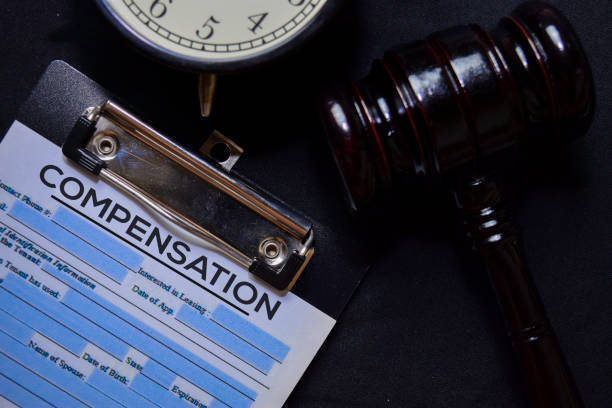 While no two personal injury cases are the same, your attorney should be able to give you a rough timeline for its completion. However, be wary of attorneys who offer an exact settlement timeframe. Setting expectations from the start is essential in providing you with peace of mind in knowing when you can expect to be able to move on from your case.
While no two personal injury cases are the same, your attorney should be able to give you a rough timeline for its completion. However, be wary of attorneys who offer an exact settlement timeframe. Setting expectations from the start is essential in providing you with peace of mind in knowing when you can expect to be able to move on from your case.
Top-Rated Personal Injury Lawyers in Phoenix, AZ
If you need help navigating a personal injury claim in Phoenix, AZ, look no further than The Law Office of Zayed Al-Sayyed. With our aggressive compassionate representation, your best interest is always our legal team’s main priority.
Browse our service page to learn more about what we can do for you or contact our team today for a free, no-obligation consultation.
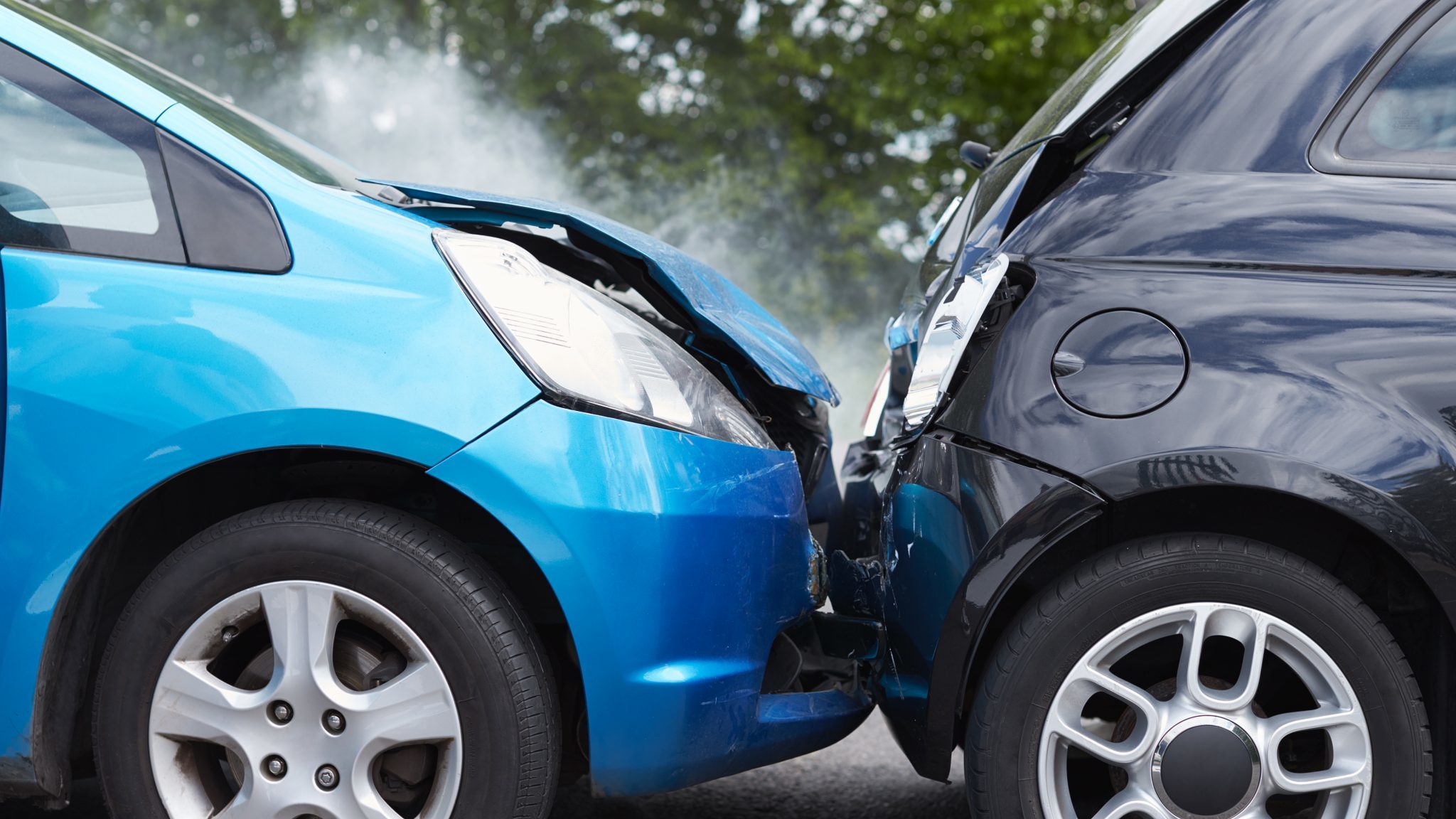
What Are The Most Common Causes of Car Accidents?
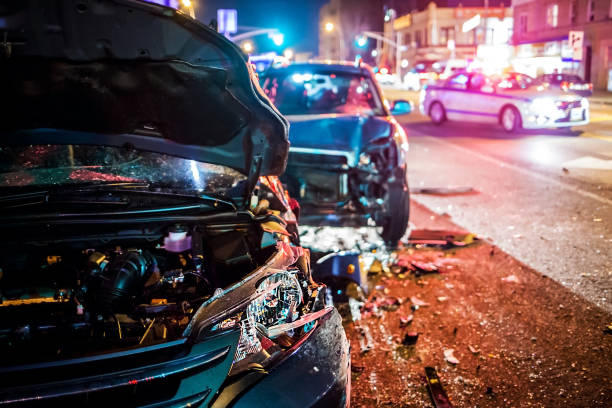 According to the Center for Disease Control, road traffic crashes are the leading cause of death for people in the U.S. aged 1 to 54 years old. Unfortunately, what this means is that you probably know someone who has been a victim of a car accident, whether it be a friend, a loved one, a coworker, or even yourself.
According to the Center for Disease Control, road traffic crashes are the leading cause of death for people in the U.S. aged 1 to 54 years old. Unfortunately, what this means is that you probably know someone who has been a victim of a car accident, whether it be a friend, a loved one, a coworker, or even yourself.
So, what are the most common causes of car accidents? Well, today’s blog post has got you covered. Familiarizing yourself with common car accident causes is a great way to avoid them and prevent injury. Today, our legal team here at The Law Office of Zayed Al-Sayyed is breaking down the most common causes of car accidents.
-
Distracted Driving
From texting to talking on the phone or even eating, distracted driving is the most common cause of road vehicle accidents in the U.S. While some of these behaviors might seem innocent enough, distracted drivers cause more accidents than both speeding and drunk driving. So, to avoid causing a distracted driving accident, make sure the road has your full attention while driving.
-
Speeding
As you could probably imagine, speeding is another one of the most common causes of car accidents. Additionally, because speeding-related accidents occur at higher speeds (hence the name), these kinds of accidents are more likely to cause fatalities.
While speeding is something many drivers are guilty of from time to time, it can lead to incredibly dangerous scenarios, like losing control of your vehicle. The faster a vehicle travels, the harder it is to slow down or stop for obstacles, and consequentially, the risk of crashing increases.
-
Drunk Driving
 Another common cause of car accidents is drunk driving, especially on the weekends and holidays. When people consume alcohol, their response time and ability to focus drastically reduce, therefore it is illegal to drive with anything above a 0.08 blood alcohol concentration (BAC) limit.
Another common cause of car accidents is drunk driving, especially on the weekends and holidays. When people consume alcohol, their response time and ability to focus drastically reduce, therefore it is illegal to drive with anything above a 0.08 blood alcohol concentration (BAC) limit.
Drunk driving accidents are easily preventable, as all motorists should avoid driving after drinking alcohol and/or enlist the help of a designated driver if needed.
-
Reckless Driving
Reckless driving covers a multitude of driving behaviors like changing lanes without looking, tailgating, excessive speeding, and ignoring road signs.
To avoid accidents caused by reckless drivers, you should maintain your focus and concentration while driving, use your signals, and keep adequate space between your vehicle and those around you.
Top-Rated Car Accident Lawyers in Phoenix, AZ
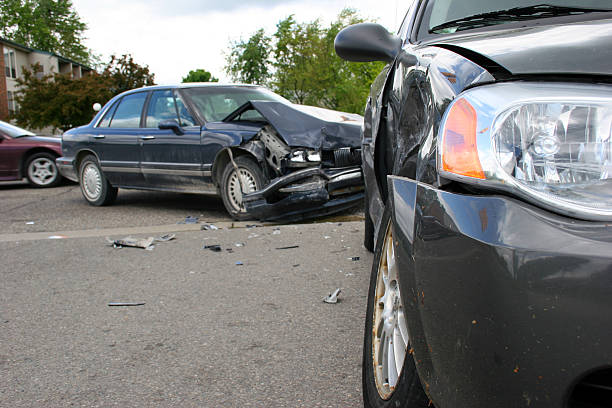 Now that you’re familiar with the most common causes of car accidents, we hope that you will be better equipped to avoid them. However, even the best drivers can find themselves in less-than-ideal circumstances.
Now that you’re familiar with the most common causes of car accidents, we hope that you will be better equipped to avoid them. However, even the best drivers can find themselves in less-than-ideal circumstances.
If you or a loved one has suffered from a car accident, the first step is to enlist the help of an experienced car accident attorney. Our legal team here at The Law Office of Zayed Al-Sayyed will relentlessly pursue the best possible outcome for your case and ensure that you receive the compensation you are owed.
Contact our team today for a free consultation.

Lane Splitting Made Legal in Arizona: What Does It Mean?
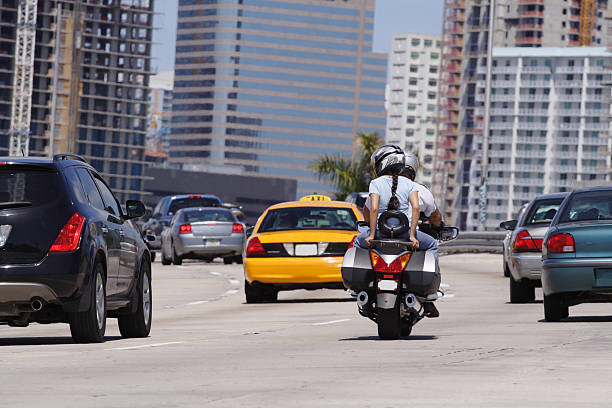 So, you may have heard that Arizona recently adopted a law that legalizes lane splitting. But what is lane splitting? And more importantly, how will the new Arizona lane splitting law affect Arizona drivers?
So, you may have heard that Arizona recently adopted a law that legalizes lane splitting. But what is lane splitting? And more importantly, how will the new Arizona lane splitting law affect Arizona drivers?
If you have been asking yourself these questions, then you have come to the right place. Our skilled team of Phoenix car accident lawyers is well-versed in Arizona driving laws and is here to break down this new change.
So, lane splitting made legal in Arizona: what does it mean? Buckle up and read on, because today we are answering that very question and more.
What Is Lane Splitting?
At one point in time, we have all witnessed lane splitting on the road—even if you didn’t realize that’s what it was. Lane splitting refers to when a motorcyclist is riding between clearly marked lanes of traffic traveling in the same direction. Generally, lane splitting occurs when traffic is moving slowly —or is completely stopped— and motorcyclists utilize their smaller size to attempt to cruise around the holdup.
In March 2022, Gov. Doug Ducey signed an Arizona state law that allows motorcyclists to ride along the side of or pass a car that is stopped in traffic. However, it applies only to streets with a speed limit of 45 miles per hour or less for motorcyclists driving a maximum of 15 miles per hour.
Is Arizona’s New Law Considered Lane Splitting?
 Yes and no. While the technical definition of lane splitting refers to any motorcyclist driving between lanes of cars (regardless of the speed of the cars), the new lane splitting law applies only when cars are stopped in the same lane as the motorcyclist.
Yes and no. While the technical definition of lane splitting refers to any motorcyclist driving between lanes of cars (regardless of the speed of the cars), the new lane splitting law applies only when cars are stopped in the same lane as the motorcyclist.
Under this new Arizona lane splitting law, motorcyclists can drive to the front of a stoplight, for example, so they are not sandwiched between two cars at a red light. (As motorcycle accident attorneys, we can verify that this is a frequent spot for motorcycle accidents to occur.) However, this law does not legalize any motorcyclist’s reckless maneuvering between cars on busy interstates.
What Does the Lane Splitting Law Mean for Arizona Drivers?
We have now covered the ins and outs of lane splitting made legal in Arizona: what does it mean? So, here are some additional points to note:
- Lane filtering at stoplights. This law allows for lane filtering, which refers to a motorcyclist’s ability to ride between cars. However, this is only permitted at stoplights when traffic is completely stopped.
- Only at slow speeds. This law only applies to roads where the speed limit is 45 miles per hour or slower. Furthermore, motorcycle riders are only able to travel at 15 miles per hour, and going faster could result in a traffic citation.
- It’s not in effect yet. You won’t notice lane filterers just yet, as the law goes into effect 90 days after the state legislature adjourns, which usually takes place in April.
Top-Rated Motorcycle Accident Lawyers in Phoenix, AZ
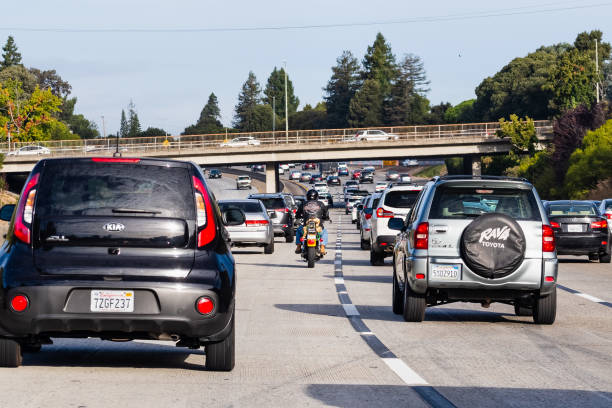 This new Arizona lane splitting law hopes to limit the number of motorcycle accidents in the Grand Canyon State. Of course, some accidents are inevitable. If you or a loved one has been involved in a motorcycle accident due to the negligence of another driver, you might be entitled to compensation.
This new Arizona lane splitting law hopes to limit the number of motorcycle accidents in the Grand Canyon State. Of course, some accidents are inevitable. If you or a loved one has been involved in a motorcycle accident due to the negligence of another driver, you might be entitled to compensation.
Our legal team here at The Law Office of Zayed Al-Sayyed will aggressively pursue your case and ensure you receive the maximum allowable compensation. Give us a call or contact our team for a free, no-obligation consultation today.

When Is the Right Time To Contact a Personal Injury Attorney?
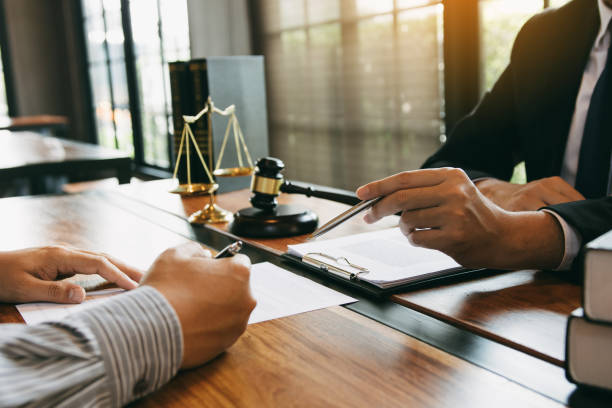 When you are suffering from an injury caused by someone else’s negligence, it can be a disorienting time. Often, victims aren’t sure what to do next. A personal injury lawyer removes the added stress and burdens caused by medical expenses, rehabilitation costs, loss of career and related wages, and decreased quality of life.
When you are suffering from an injury caused by someone else’s negligence, it can be a disorienting time. Often, victims aren’t sure what to do next. A personal injury lawyer removes the added stress and burdens caused by medical expenses, rehabilitation costs, loss of career and related wages, and decreased quality of life.
But when is the right time to contact a personal injury attorney? Right after the accident? Once symptoms develop? Do all personal injury claims require an attorney?
Here at The Law Office of Zayed Al-Sayyed, we can answer all these questions and more.
We understand that deciding when is the right time to contact a personal injury attorney can be confusing. That’s why our expert legal team is going to break it all down for you. Let’s go over the various situations when you should contact a personal injury attorney.
When Liability is Disputed
 To receive compensation for your injuries, you must be able to prove that the other party’s negligence or wrongdoing caused the accident. While this might sound easy enough, successfully proving someone else’s negligence typically requires the assistance of a skilled personal injury attorney.
To receive compensation for your injuries, you must be able to prove that the other party’s negligence or wrongdoing caused the accident. While this might sound easy enough, successfully proving someone else’s negligence typically requires the assistance of a skilled personal injury attorney.
Furthermore, if the other party disputes or denies liability, then receiving compensation becomes nearly impossible without a personal injury lawyer advocating on your behalf. Here at The Law Office of Zayed Al-Sayyed, our legal team conducts a thorough investigation to determine how your injury occurred, who is responsible, and which legal strategy is best for proving liability.
When The Other Party Says You Contributed
Another time when you will want to contact a personal injury attorney is whenever the other party claims you contributed to the accident. As personal injury lawyers, we understand that accidents are often complicated. Therefore, it is not uncommon for insurance companies to say that you contributed in some way, like speeding.
Whether or not you are partially at fault, enlisting the help of a personal injury attorney is critical. Insurance companies have certain tactics that they use to devalue your claim, but having a personal injury lawyer by your side is the best way to combat them.
If You Were Seriously Injured
 The third situation when you should contact a personal injury attorney is if you were seriously injured in the accident. If you are facing expensive medical bills, now have a permanent disability, or are unable to return to normal life right away, an experienced attorney will help you receive the compensation you are owed.
The third situation when you should contact a personal injury attorney is if you were seriously injured in the accident. If you are facing expensive medical bills, now have a permanent disability, or are unable to return to normal life right away, an experienced attorney will help you receive the compensation you are owed.
Here at The Law Office of Zayed Al-Sayyed, we diligently pursue the maximum allowable compensation for personal injuries and suffering caused by negligence. With our team by your side, you can rest assured that your interests will be taken care of.
Best Personal Injury Lawyers in Phoenix, AZ
If you or a loved one have suffered an injury caused by someone else’s negligence, then it is time to contact the diligent team at The Law Office of Zayed Al-Sayyed. Having been recognized as a Top 40 Under 40 Attorney, we promise to represent your case with compassion, determination, and promptness.
We offer free, no-obligation consultations and multilingual services. Fill out our online contact form or call our office today to speak with a Phoenix personal injury lawyer.
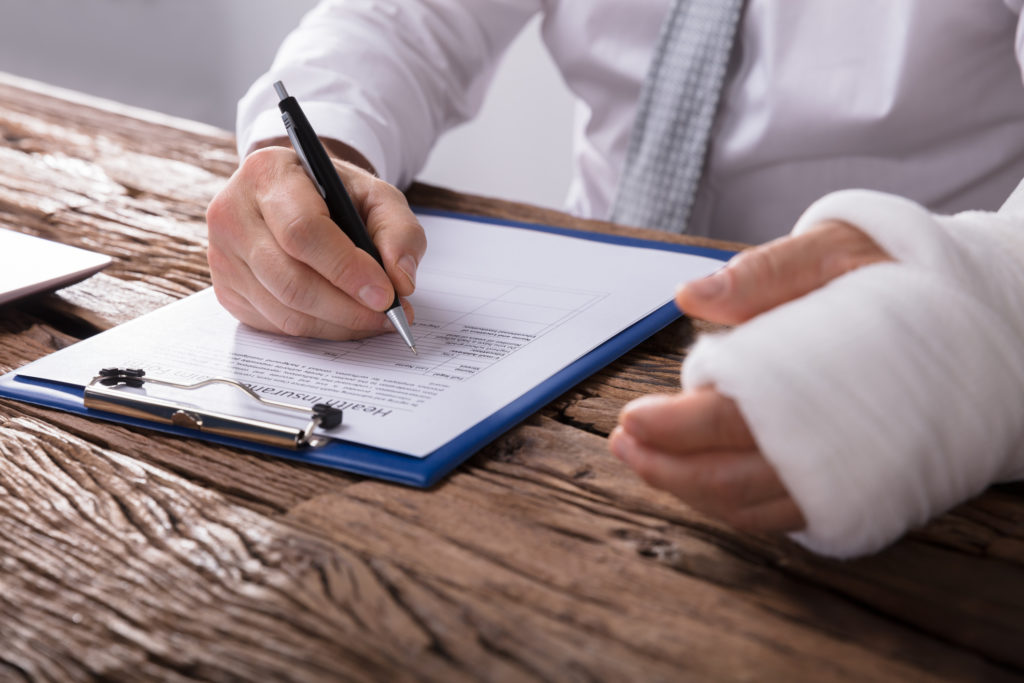
What To Consider Before Filing a Personal Injury Claim
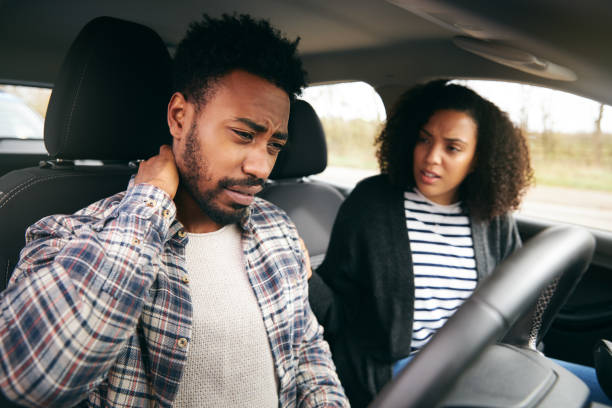 Personal injuries are legally classified as those resulting from another person’s carelessness or negligence. While many assume that personal injuries are purely physical, they also come with psychological pain and mental anguish that is associated with trauma, the loss of earning capacity, or impairment of life.
Personal injuries are legally classified as those resulting from another person’s carelessness or negligence. While many assume that personal injuries are purely physical, they also come with psychological pain and mental anguish that is associated with trauma, the loss of earning capacity, or impairment of life.
As personal injury attorneys, we regularly see personal injury claims resulting from car accidents, pedestrian accidents, bicycle accidents, construction accidents, medical malpractice, and more. Regardless of how your injury occurred, it’s important to know what to consider before filing a personal injury claim.
Our skilled legal team at The Law Office of Zayed Al-Sayyed is sharing a few of the most important factors to consider in the event of an accident to help ease the process.
Here’s what to consider before filing a personal injury claim:
-
Collect Your Evidence
Before you file a personal injury claim, you must gather ample evidence of your injury. You should start by documenting all your injuries (physical injuries, emotional distress, and any pain and suffering like loss of income). Then, you should collect relevant evidence that verifies the extent of your injuries. This includes evidence like:
- Medical records
- Police reports
- Physical therapy reports
- Psychological evaluations
If you’re having trouble collecting evidence—or the process has become overwhelming—contact a personal injury lawyer or attorney to help. As your attorney, it is our job to remove the stressful burdens of a personal injury claim and ensure that you get the compensation you deserve.
-
Hire a Personal Injury Attorney
 Personal injury claims are never something you should attempt to navigate without a skilled personal injury attorney by your side. Our qualified lawyers are relentless in their efforts to remove the stress that comes from medical expenses, rehabilitation costs, loss of income, and quality of life loss.
Personal injury claims are never something you should attempt to navigate without a skilled personal injury attorney by your side. Our qualified lawyers are relentless in their efforts to remove the stress that comes from medical expenses, rehabilitation costs, loss of income, and quality of life loss.
Of course, you can try and navigate the insurance companies on your own, but you probably won’t receive the settlement you’re truly owed. By working with a personal injury lawyer, the process becomes far less stressful and you are more likely to receive the settlement you deserve.
-
Is Liability Certain?
The final factor to consider before filing a personal injury claim is the certainty of liability. Is the defendant liable for the injuries you sustained? Obtaining proof that they are liable will result in a higher settlement value than if that liability remains unclear.
While this concept seems simple enough, arguing liability is an area where a personal injury lawyer can be incredibly beneficial. Not only does a lawyer understand Arizona state laws and procedures, but they have ample resources to identify and interview witnesses, compile evidence, and create the strongest liability cases possible.
Top Personal Injury Lawyers in Phoenix, AZ
 We sincerely hope that you never have to suffer from a personal injury accident. In the event that you do, knowing what to consider before filing a personal injury claim will help to guide you along the way.
We sincerely hope that you never have to suffer from a personal injury accident. In the event that you do, knowing what to consider before filing a personal injury claim will help to guide you along the way.
Working with our legal team at The Law Office of Zayed Al-Sayyed will help you maximize the compensation that you are rightfully owed. Having been recognized as a Super Lawyer from 2017-to 2021, we guarantee to proactively fight for your future and wellbeing. If you’re ready for a free consultation, contact our team today.
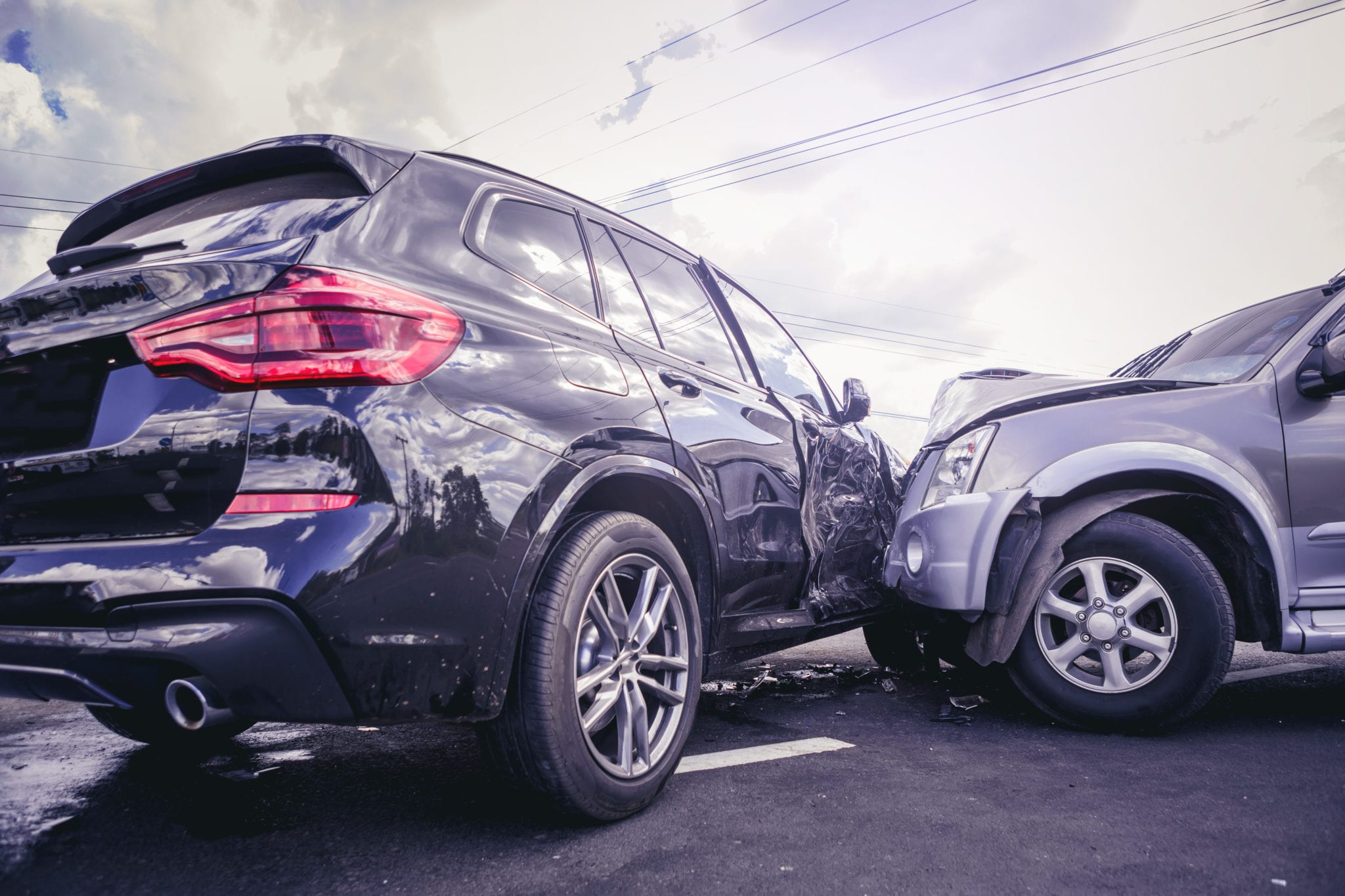
Tactics Car Accident Companies Use to Devalue Accident Claims
 Car accidents can be stressful, frustrating, and downright scary. Unfortunately, they are often just the tip of the iceberg. If you or a loved one is injured or sustains property damage from a car accident caused by someone else’s negligence, you are entitled to compensation for your losses. However, that is typically a long and tricky road.
Car accidents can be stressful, frustrating, and downright scary. Unfortunately, they are often just the tip of the iceberg. If you or a loved one is injured or sustains property damage from a car accident caused by someone else’s negligence, you are entitled to compensation for your losses. However, that is typically a long and tricky road.
After an accident, the last thing anyone wants to deal with is more stress. That’s why the legal team here at The Law Office of Zayed Al-Sayyed is devoted to helping you make the best decisions for your case. Not only will we clearly explain your rights to you throughout the legal process, but we can help you combat these tactics car accident companies use to devalue accident claims:
- Calling Too Quickly After the Injury
It is common for car insurers to call you almost immediately after a car accident and they do so for a couple of reasons. First and foremost, insurers want to catch you off guard. Typically, people are in a more vulnerable state after an accident and insurance sharks hope to capitalize on that vulnerability.
Additionally, insurers tend to give you a call before you have had the opportunity to fully determine the scope of your injuries. This is no mistake. Insurers are hoping that you don’t yet know the full extent of your damages, meaning that you might settle for less than you deserve.
Of course, they also are hoping that you haven’t yet obtained a personal injury lawyer or a car accident attorney (who is going to make sure you get exactly what you deserve).
- Asking For a Recorded Statement
Another tactic insurance companies use to devalue accident claims is asking for a recorded statement. While allowing insurance companies to record your statement seems reasonable and just, it is in no way a requirement and is something you should avoid.
We recommend that you always decline being recorded to make sure you are protected from accidentally saying something to devalue or jeopardize your claim. Don’t worry, your personal injury lawyer will do the talking for you.
- Offering Quick Settlements
 While quick settlements might seem enticing, they are usually much lower than the amount you are truly entitled to. Insurance companies like to offer them before you’ve had the chance to fully evaluate your injuries and losses, hoping you are in a vulnerable state and desperate for financial compensation.
While quick settlements might seem enticing, they are usually much lower than the amount you are truly entitled to. Insurance companies like to offer them before you’ve had the chance to fully evaluate your injuries and losses, hoping you are in a vulnerable state and desperate for financial compensation.
However, once you agree to a quick settlement, it is nearly impossible to reopen your claim and ask for more money. Basically, you should assume that anything the insurance company offers you is not enough.
- Asking You To Sign a Medical Authorization
Getting an injury victim to sign a blanket medical authorization is another sneaky tactic car accident companies use to devalue accident claims. This ruse is fairly common, as a blanket medical authorization is a powerful tool that gives insurance companies access to your private medical information.
With access to such information, insurance companies are able to blame your current pain on any pre-existing condition or past injury, which of course, devalues your car accident claim. Trust us on this one, it’s a trap.
Top Car Accident Attorneys in Phoenix, AZ
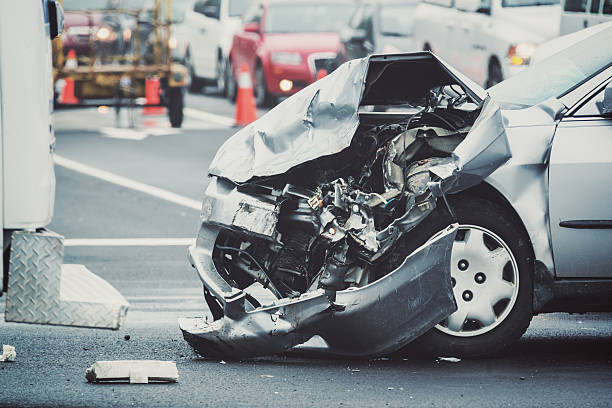 Have you or a loved one suffered personal injury or loss due to a car accident? If so, we recommend that you don’t go through this process alone. After your car accident, the first step is to consult with a skilled Phoenix car accident attorney. Not only will they help you combat these tactics car accident companies use to devalue accident claims, but they will ensure that you get the compensation you deserve.
Have you or a loved one suffered personal injury or loss due to a car accident? If so, we recommend that you don’t go through this process alone. After your car accident, the first step is to consult with a skilled Phoenix car accident attorney. Not only will they help you combat these tactics car accident companies use to devalue accident claims, but they will ensure that you get the compensation you deserve.
With our Aggressive Compensation Representation, we promise to relentlessly pursue the best possible outcome for your case. For more information or a free consultation, contact our team today.
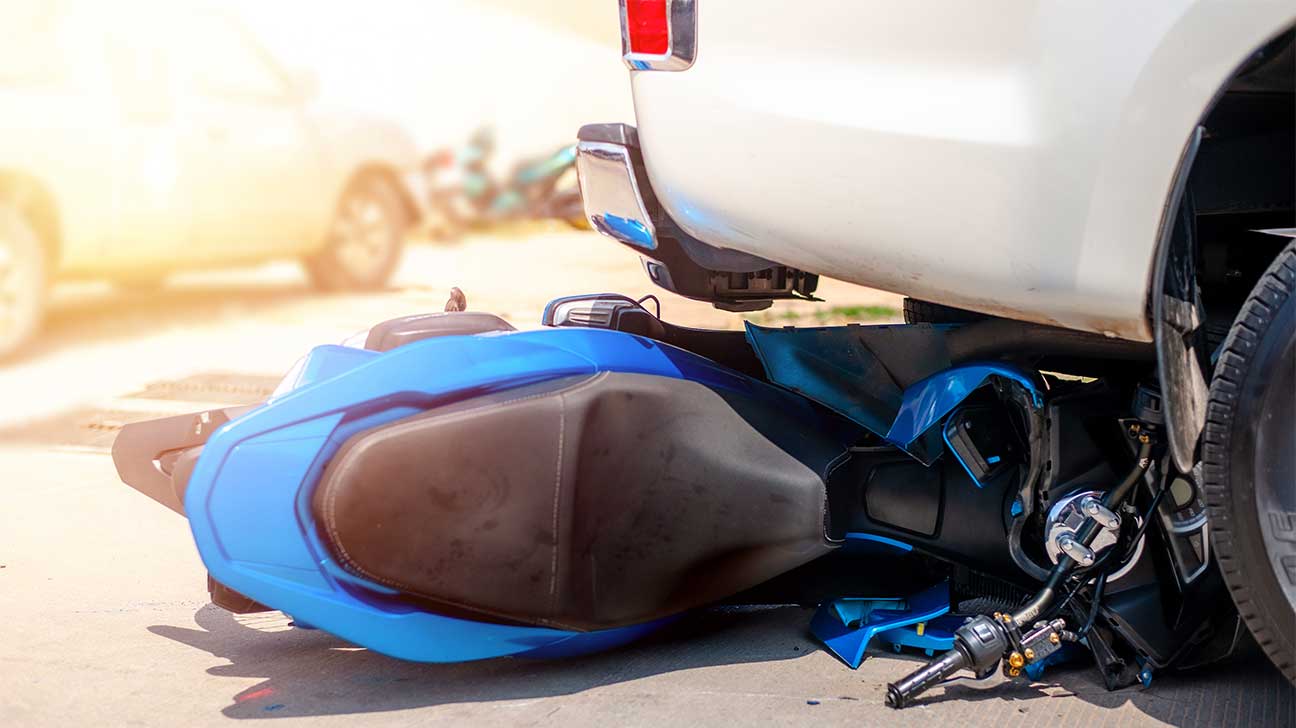
What Are the Main Causes of Motorcycle Accidents?
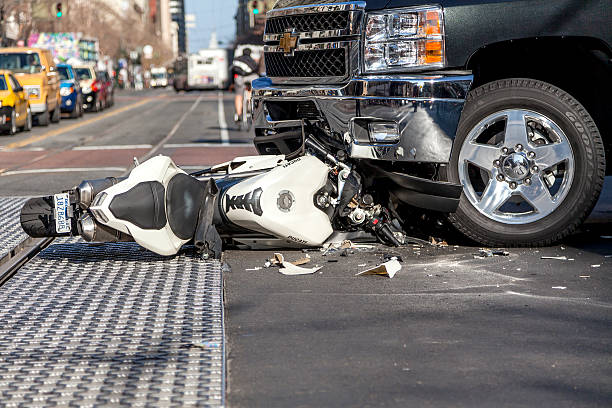 According to the National Highway Traffic Safety Administration, motorcycles accounted for just 3 percent of all registered vehicles in the United States in 2019. Nevertheless, motorcyclists made up 14 percent of all traffic deaths. While riding a motorcycle is inherently risky, there are ways to protect yourself.
According to the National Highway Traffic Safety Administration, motorcycles accounted for just 3 percent of all registered vehicles in the United States in 2019. Nevertheless, motorcyclists made up 14 percent of all traffic deaths. While riding a motorcycle is inherently risky, there are ways to protect yourself.
Here at The Law Office of Zayed Al-Sayyed, we specialize in helping people file personal injury claims resulting from motorcycle accidents. In the event of an accident, we can help to ensure that you get the compensation you deserve. However, there are ways you can avoid getting into an accident altogether.
By now you may be wondering, what are the main causes of motorcycle accidents? Keep reading, as our legal experts are answering that very question down below.
Here are the top 3 main causes of motorcycle accidents:
-
Cars Making Left Turns
One of the main causes of motorcycle accidents occurs when a car turns left in front of a motorcycle. Simply put, the best way to avoid this sort of accident is to see it coming. Both drivers and motorcyclists should keep their eyes peeled at all times and slow down when driving through intersections.
While car drivers are used to accommodating other cars, they don’t always see motorcycles in the way. Therefore, motorcyclists should drive defensively and slow down as much as possible through intersections. For your own safety, it is best to always assume that a car will be turning left at some point.
-
Lane Splitting
Most of us have seen it: there is still or slow-moving traffic on the highway and a motorcycle is snaking its way between two lanes of cars. Now if you think this looks dangerous, you’re absolutely right. Weaving between cars is called lane splitting and it is another main cause of motorcycle accidents.
Most car drivers aren’t expecting someone to pass them in slow or stopped traffic, and motorcycles are easily obstructed in a car’s blind spot. Additionally, there isn’t a lot of room for motorcyclists to maneuver when they are weaving between cars. Both of these factors combined make it a big risk for potential motorcycle accidents.
-
Lane-Switching Accidents
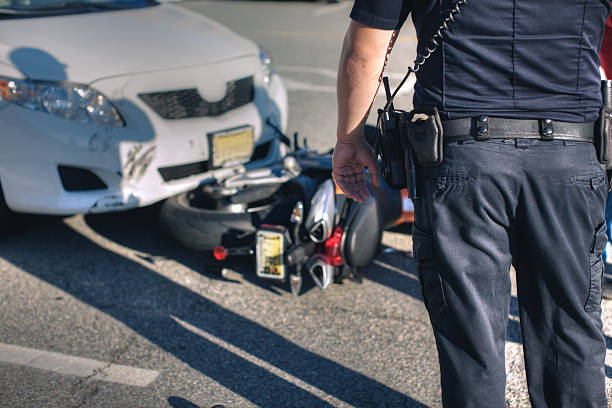 The third main cause of motorcycle accidents is switching lanes. As we mentioned, motorcyclists often follow in a car’s blind spot, so they are often unseen by drivers attempting to switch lanes.
The third main cause of motorcycle accidents is switching lanes. As we mentioned, motorcyclists often follow in a car’s blind spot, so they are often unseen by drivers attempting to switch lanes.
To prevent lane-switching accidents from occurring, motorcyclists should avoiding riding in a car’s blind spot and should be on the lookout for signs of a potential merge (a car’s blinker, for example). As a motorcyclist, it’s good practice to check and see if the car driver’s face is visible to you in your side mirror. If so, then the driver can most likely see you as well.
Best Motorcycle Accident Lawyers in Phoenix, AZ
As unfortunate as they are, motorcycle accidents are quite common—especially in states like Arizona with high numbers of motorcycles. It’s essential to familiarize yourself with the main causes of motorcycle accidents so you can better avoid them.
If you or a loved one are filing a personal injury claim as a result of a motorcycle accident, visit our website. Our expert legal team at The Law Office of Zayed Al-Sayyed promises to relentlessly advocate on your behalf and secure the compensation you deserve. If you’re interested in a consultation, contact our team today.

